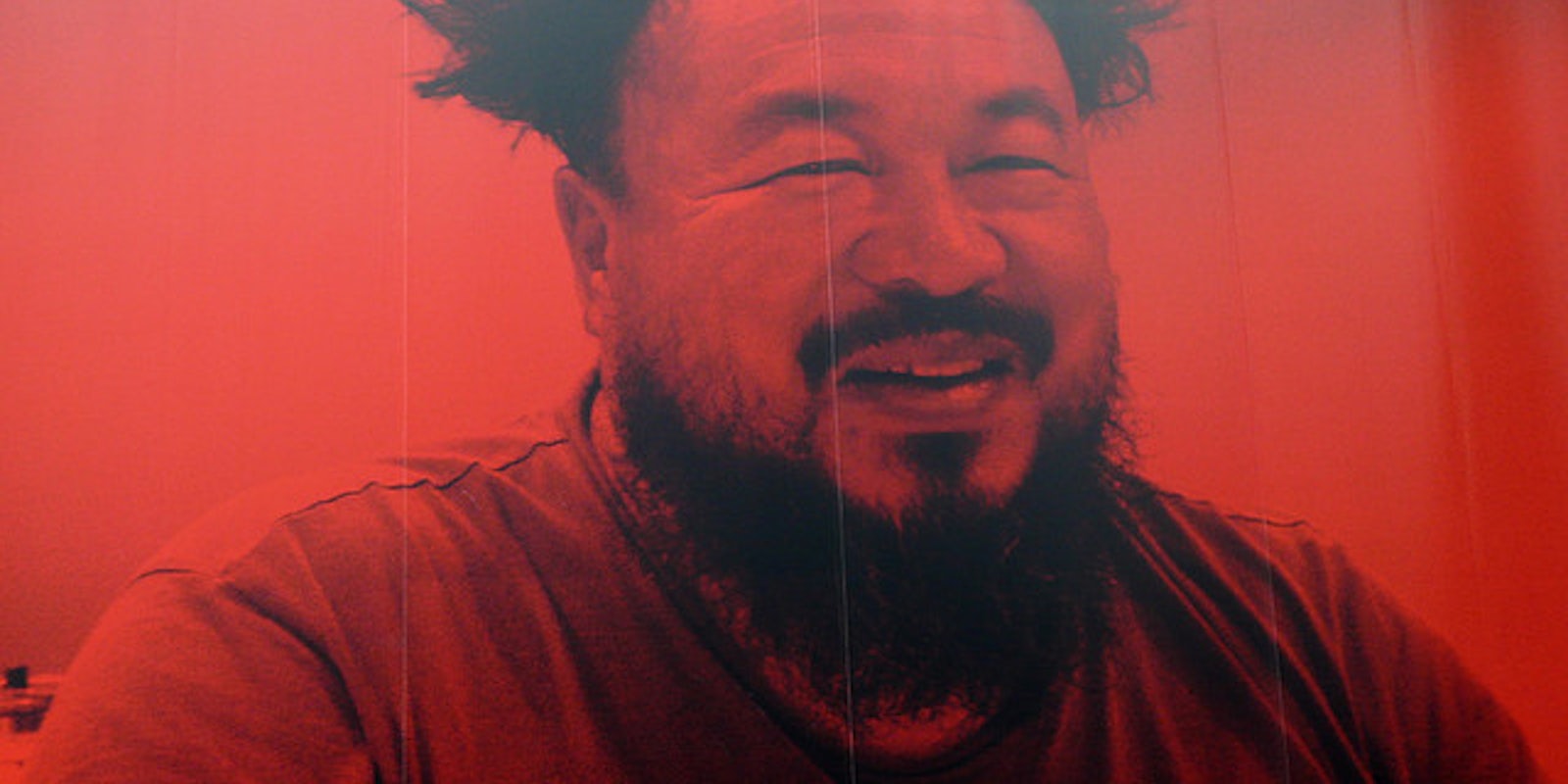The Chinese government has tried to silence Ai Weiwei several times, but the popular artist and dissident continues to innovate new ways to make himself heard. And now, thanks to the New Statesman, he has one more way to sidestep censorship and speak out about the future of the country.
On Thursday, the left-leaning British news and politics magazine announced it had brought Ai on as a guest editor for this week’s issue, which has been translated into Mandarin and made available to Chinese residents via The Pirate Bay and other file-sharing sites.
Ai is known as much for his political views as he is for his art. In addition to serving as the artistic consultant for the Beijing National Stadium, an athletic structure built for the 2008 Beijing Olympics, AI also heavily criticized the Chinese government for its oppressive nature and its violations of human rights. Long thought to be untouchable, Ai was arrested in 2011 for alleged tax evasion and was detained for two months before being released.
The artist is also very active in social media. Ai maintained a personal blog until his arrest, when the site was censored. As a result, he has upped his activity on Twitter, where he expresses his thoughts on a regular basis to his 172,989 followers.
“The issues on which Ai has spoken out are vital ones,” wrote New Statesman deputy editor Helen Lewis in her blog post explaining the guest editorship.
“So the New Statesman decided to do what it could to help. This week, we have produced the magazine in Mandarin, in PDF format, which we are uploading to file-sharing sites…”
Lewis also provides several links where users can download the issue via BitTorrent.
“Internet-savvy people in China have learned how to get around the censors using private networks and encryption, and they will be able to access the digital version of the NS— and give it to their friends.”
Unsurprisingly, the Ai Weiwei-edited edition of the magazine focuses on Chinese issues. Among the articles is an interview the artist conducted with an individual paid by the Chinese government to purposefully troll and derail any online conversations about the way the country is run. The issue also includes pieces about China’s mistreatment of Tibetans and persecution of human rights lawyers.
Photo by Sanfanmedia.com/Flickr


